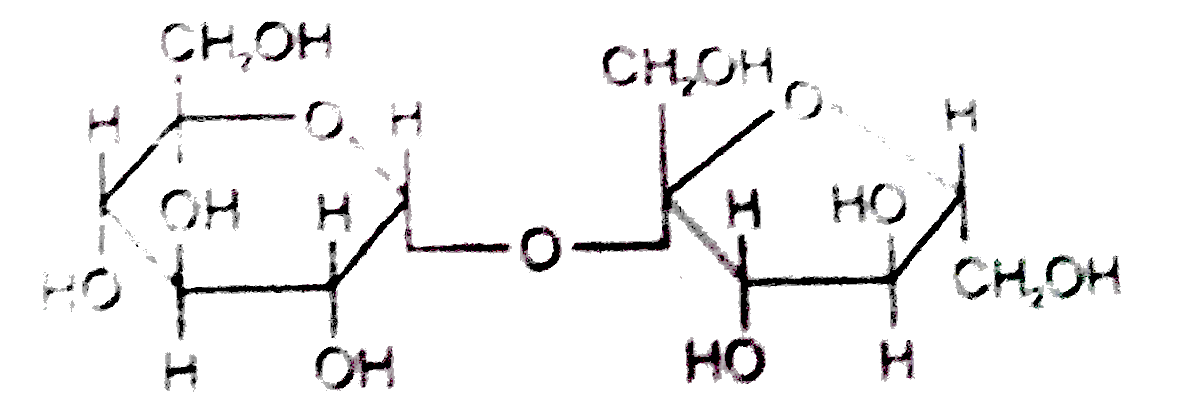Which of the following compounds on basic hydrolysis will gives formaldehyde ?
CHCl3
CH3−CHCl3
CH2Cl2
CCl4
The correct Answer is:C
To solve the question of which compound gives formaldehyde upon basic hydrolysis, we will analyze each of the given compounds step by step.
Step 1: Understanding Basic Hydrolysis
Basic hydrolysis involves the reaction of a compound with water in the presence of a strong base (like NaOH or KOH). This process typically involves the breaking of bonds in the compound and the formation of new bonds with hydroxide ions (OH⁻) from the base.
Hint: Remember that basic hydrolysis usually replaces halogens with hydroxyl groups.
Step 2: Analyzing Each Compound
We will analyze each compound provided in the question to see which one produces formaldehyde (HCHO) upon hydrolysis.
Compound A: CHCl3 (Chloroform)
1. Reaction with Base: CHCl3 reacts with OH⁻ to replace Cl atoms with OH groups.
2. Intermediate Formation: This leads to the formation of a geminal diol (CH(OH)3).
3. Dehydration: The geminal diol is unstable and loses water to form HCOOH (formic acid), not formaldehyde.
Conclusion: CHCl3 does not yield formaldehyde.
Hint: Look for the stability of the intermediate formed during hydrolysis.
Compound B: CH3CCl3 (Trichloroethane)
1. Reaction with Base: Similar to chloroform, CH3CCl3 reacts with OH⁻, replacing Cl atoms with OH groups.
2. Intermediate Formation: This leads to a geminal diol.
3. Dehydration: The geminal diol loses water and forms CH3C(=O)OH (acetic acid), not formaldehyde.
Conclusion: CH3CCl3 does not yield formaldehyde.
Hint: Consider the number of halogen atoms and how they affect the product.
Compound C: CH2Cl2 (Dichloromethane)
1. Reaction with Base: CH2Cl2 reacts with OH⁻, replacing Cl atoms with OH groups.
2. Intermediate Formation: This forms a geminal diol (CH(OH)2).
3. Dehydration: The geminal diol loses water, resulting in HCHO (formaldehyde).
Conclusion: CH2Cl2 yields formaldehyde.
Hint: Identify the final product after dehydration of the geminal diol.
Compound D: CCl4 (Carbon Tetrachloride)
1. Reaction with Base: CCl4 is a non-polar compound and does not undergo hydrolysis easily under basic conditions.
2. Conclusion: It does not yield any product, let alone formaldehyde.
Hint: Consider the polarity of the compound and its reactivity with water.
Final Answer
After analyzing all the compounds, the only compound that gives formaldehyde upon basic hydrolysis is CH2Cl2 (Dichloromethane).
Correct Answer: C (CH2Cl2)
Basic hydrolysis involves the reaction of a compound with water in the presence of a strong base (like NaOH or KOH). This process typically involves the breaking of bonds in the compound and the formation of new bonds with hydroxide ions (OH⁻) from the base.
We will analyze each compound provided in the question to see which one produces formaldehyde (HCHO) upon hydrolysis.
1. Reaction with Base: CHCl3 reacts with OH⁻ to replace Cl atoms with OH groups.
2. Intermediate Formation: This leads to the formation of a geminal diol (CH(OH)3).
3. Dehydration: The geminal diol is unstable and loses water to form HCOOH (formic acid), not formaldehyde.
1. Reaction with Base: Similar to chloroform, CH3CCl3 reacts with OH⁻, replacing Cl atoms with OH groups.
2. Intermediate Formation: This leads to a geminal diol.
3. Dehydration: The geminal diol loses water and forms CH3C(=O)OH (acetic acid), not formaldehyde.
1. Reaction with Base: CH2Cl2 reacts with OH⁻, replacing Cl atoms with OH groups.
2. Intermediate Formation: This forms a geminal diol (CH(OH)2).
3. Dehydration: The geminal diol loses water, resulting in HCHO (formaldehyde).
1. Reaction with Base: CCl4 is a non-polar compound and does not undergo hydrolysis easily under basic conditions.
2. Conclusion: It does not yield any product, let alone formaldehyde.
After analyzing all the compounds, the only compound that gives formaldehyde upon basic hydrolysis is CH2Cl2 (Dichloromethane).
Topper's Solved these Questions
Similar Questions
Knowledge Check
Which of the following compound is most basic
ACH3−O∣∣C−..NH2BH2..N−..NH∣∣C−..NH2CCH3−..NH∣∣C−..NH2DPh−O∣∣C−..NH2Which of the following compounds is most basic
A B
B C
C D
D
The following compound on hydrolysis will give
 AA pair of anomersBA pair of enantiomerisCA pair of epimersDA pair of molecules having common tautomer
AA pair of anomersBA pair of enantiomerisCA pair of epimersDA pair of molecules having common tautomer
Which of the following compounds is most basics
View SolutionWhich of the following compounds is most basic?
View SolutionWhich of the following compounds is most basic ?
View SolutionWhich of the following compounds is most basic?
View SolutionWhich of the following compounds is most basic?
View Solution
